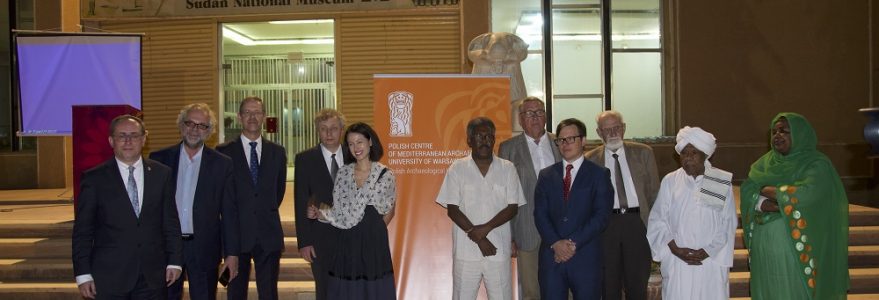On 27th February the Polish Centre of Mediterranean Archaeology of UW opened its branch in Khartoum in Sudan.
More than 50 years ago Polish archaeologists took part in the UNESCO international campaign to save the monuments of Nubia. Prof. Kazimierz Michałowski and Stefan Jakobielski led a team that discovered the cathedrals at Faras and saved the wall paintings from destruction in the waters of the lake created by the construction of the Aswan Dam.
Today, teams from the PCMA and other academic institutions in Poland regularly excavate and survey archaeological sites in Sudan. The new Polish Archaeological Unit in Khartoum will institutionalise the logistic and academic support needed in the field by close to a hundred professionals every year.
Headed by Prof. Mahmoud El-Tayeb of the PCMA, this is only the second foreign archaeological institute operating in Khartoum. Office space and lodgings for scholars staying or passing through Khartoum have kindly been provided by The Heritage Protection Fund from Gdańsk.
Apart from providing logistic assistance for Polish scientific expeditions working in Sudan, not the least the University of Warsaw missions, the Polish Archaeological Unit in Khartoum will engage in archaeological research in Sudan, launching joint projects with the Sudanese and strengthening ties of cooperation with other foreign archaeological expeditions working in Sudan.
It will liaison between the National Corporation for Antiquities and Museums (NCAM) and the Ministry of Interior to deal with administration of the Polish expeditions in the field and will offer NCAM staff as well other heritage and culture-related agencies support in the fields of capacity building, site presentation and archaeological research management projects, training and mutual study visits.
The unit will prepare, e.g. exhibitions, lectures, film screenings, study tours of sites to popularise the results of Polish archaeological research in Sudan.



